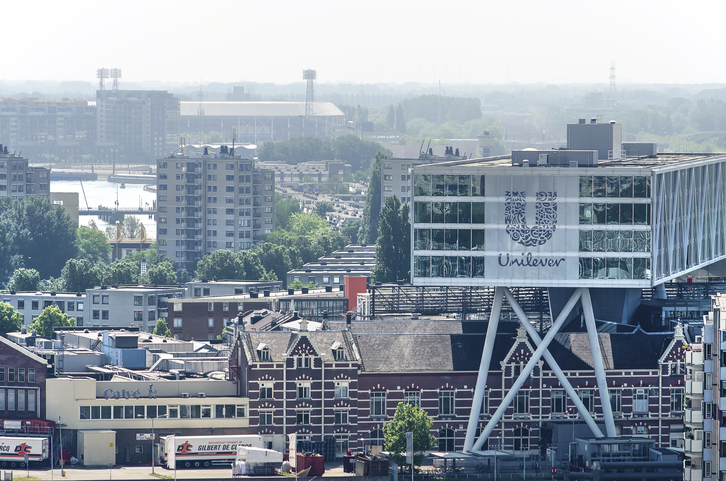ii view: Unilever ice cream sales leave investors cold
Consumer goods giant Unilever leaves full-year sales guidance unchanged. Investors are unimpressed.
25th July 2019 14:13
by Keith Bowman from interactive investor
Consumer goods giant Unilever leaves full-year sales guidance unchanged. Investors are unimpressed.

Half-year results
- Group turnover up 0.9% to €26.1 billion
- Underlying sales growth (USG) +3.3%
- Quarterly dividend unchanged at €0.4104 per share
Chief executive Alan Jope said:
"We have delivered consistent growth within our guided range for 2019, led by our emerging markets. Accelerating growth remains our top priority and we continue to evolve our portfolio and seek out fast growth channel and geographical opportunities, as well as address those performance hotspots where growth is falling short of our aspirations."
Guidance:
"For the full year, we continue to expect underlying sales growth to be in the lower half of our multi-year 3-5% range."
ii round-up:
Consumer goods company Unilever (LSE:ULVR) employs over 150,000 staff. It is home to around 400 brands, including Comfort, Dove, Wall's and Cif. Twelve brands each have annual sales of more than €1 billion.
Sales are split almost equally between Beauty & Personal Care at 40.5% and Foods & Refreshment at 39.7%, with Home Care accounting for the rest.
Unilever divides its geographical regions into three, with Asia, Africa, Middle East, Turkey, Russia, Ukraine, Belarus the largest at nearly 45% of sales. The Americas is second-largest, then Europe.
Half-year results proved marginally disappointing. Underlying sales growth came just shy of analysts' forecasts, with poor weather hindering ice cream sales. Growth in India also slowed due to a late monsoon season. Good momentum was reported broadly across emerging markets but particularly in China and South East Asia.
The share price was down 2% in afternoon UK stock market trade.
Sales guidance for the full year was left unchanged.
ii view:
Recent years have not been all plain sailing for Unilever. Wage-squeezed consumers have often been turning to cheaper non-branded goods and discount retailers like Aldi only stock non-branded goods.
For investors, the company is considered to be defensive in nature. The type of products it sells are regularly on the shopping lists of consumers globally. Its brands have also increasingly been marketed and sold in the emerging markets.
A forward price earnings (PE) ratio of around 22 and above the 10-year average of just under 20 suggests investors are happy to pay-up for high-quality, defensive stocks in uncertain times.
Positives:
- Against a backdrop of economic and political uncertainty, Unilever a defensive play
- Emerging market sales growing
- Offers diversity in both product type and geographical location
Negatives:
- For the full year, underlying sales growth expected to be in the lower half of forecast range
- Has on occasion been investigated by competition authorities
- Discount retailers often only stock their own branded labels
The average rating of stock market analysts:
Strong hold
These articles are provided for information purposes only. Occasionally, an opinion about whether to buy or sell a specific investment may be provided by third parties. The content is not intended to be a personal recommendation to buy or sell any financial instrument or product, or to adopt any investment strategy as it is not provided based on an assessment of your investing knowledge and experience, your financial situation or your investment objectives. The value of your investments, and the income derived from them, may go down as well as up. You may not get back all the money that you invest. The investments referred to in this article may not be suitable for all investors, and if in doubt, an investor should seek advice from a qualified investment adviser.
Full performance can be found on the company or index summary page on the interactive investor website. Simply click on the company's or index name highlighted in the article.